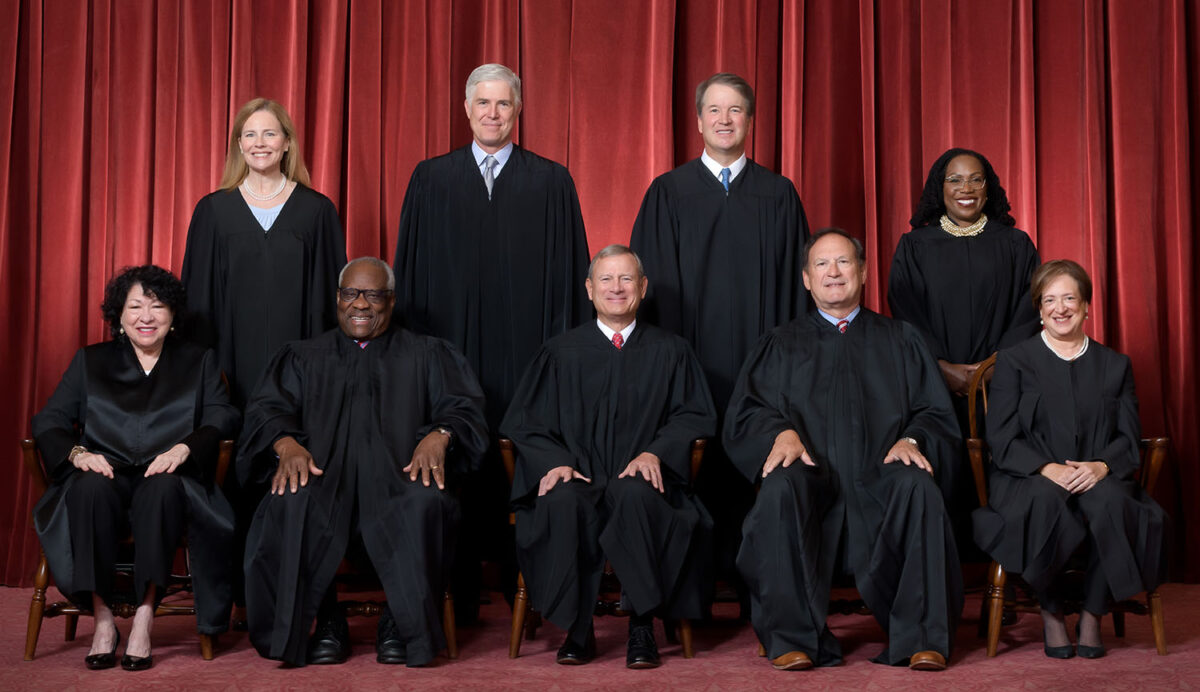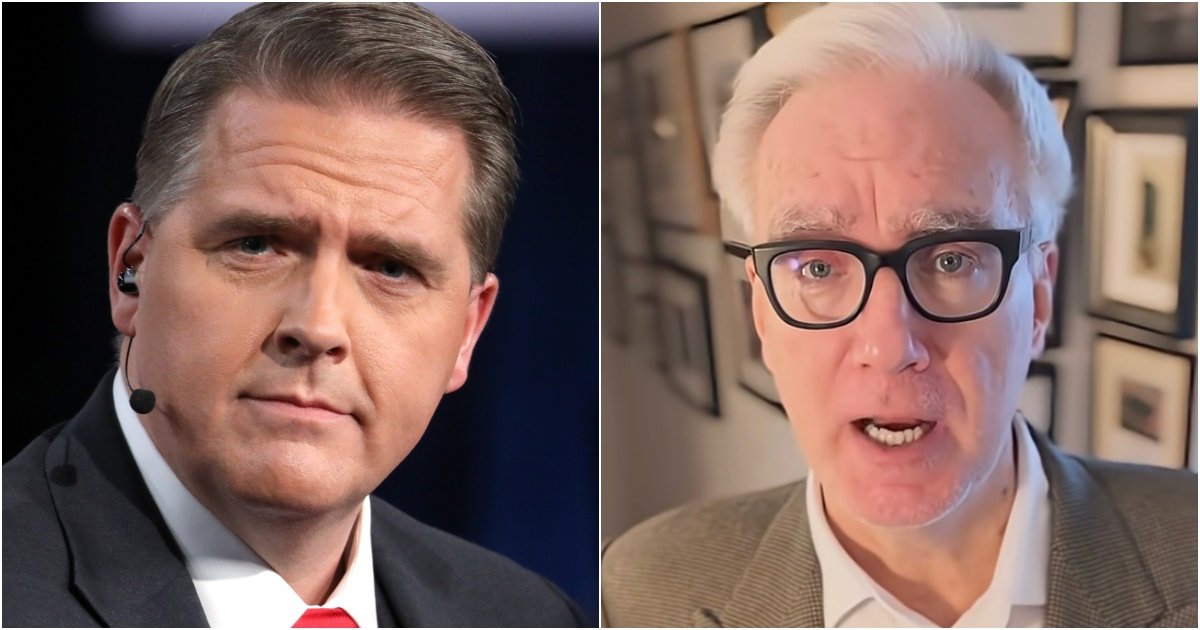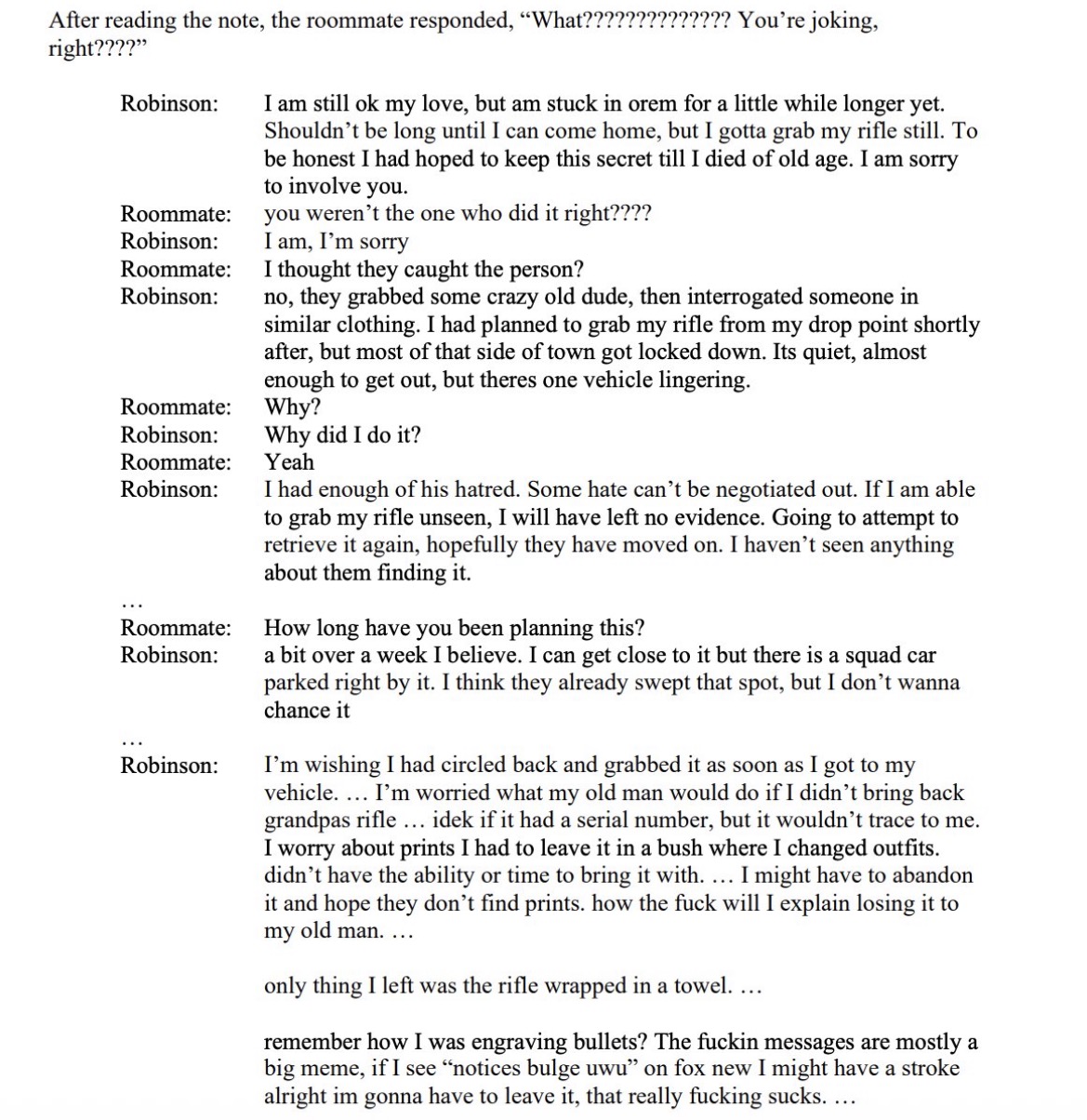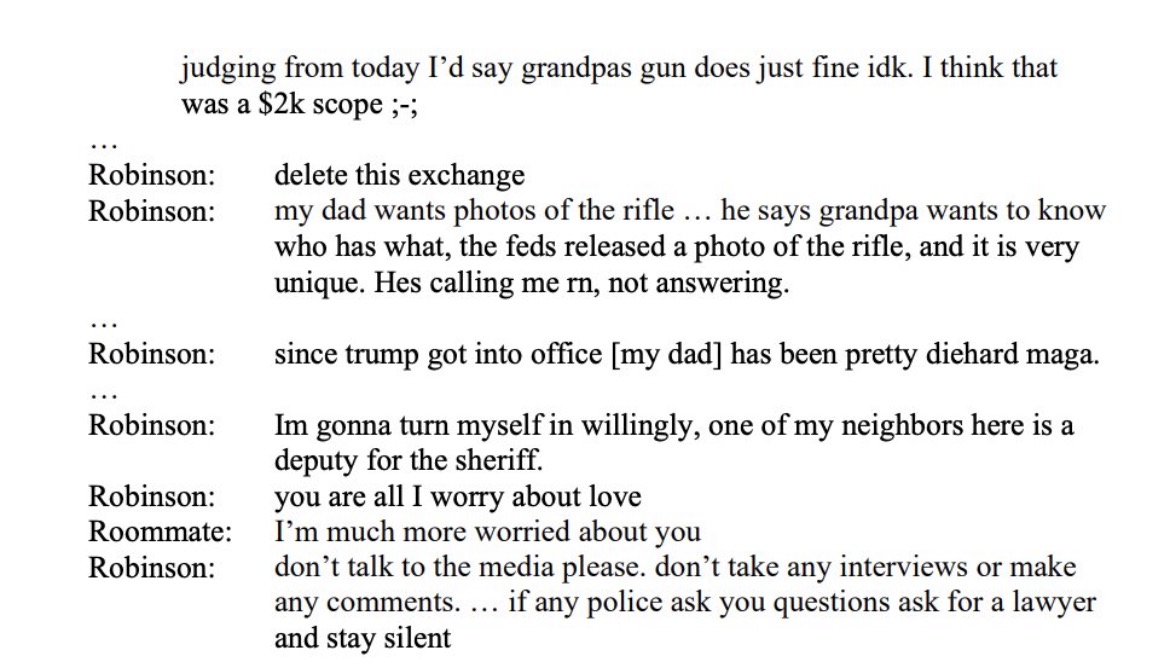Politics
Courts Hold Grooming Kids in School is Fine But Don’t You Dare Mention God


In a recent case, Lee v. Poudre School District R-1, Colorado parents Jonathan and Erin Lee, along with Nicolas and Linnaea Jurich, sued their school district, alleging it groomed their daughters into the LGBTQ cult through secretive Gender and Sexualities Alliance (GSA) meetings. They claimed teachers misled their children about gender identity, encouraged them to hide it from parents, and caused severe emotional harm, including suicidal ideation.
Yet, on April 22, 2025, the Tenth Circuit Court of Appeals upheld the dismissal of their lawsuit because, according to the Court, the parents failed to prove the district’s policies directly caused their injuries.
Let’s rewind to 1992’s Lee v. Weisman, when the U.S. Supreme Court swooped in to “save” a defenseless girl from hearing a rabbi’s invocation at her graduation. The Court declared that even a brief prayer violated the First Amendment because of the potential coercive effect on the poor defenseless girl who was subjected to hear the Name of God. The Court feared that – God forbid – an atheist student may be persuaded to believe in God at a public school, and the Court could not take that chance. The Supreme Court sent a clear message: God has no place within America’s schools.
 The Supreme Court as composed June 30, 2022, to present.
The Supreme Court as composed June 30, 2022, to present.
Credit: Fred Schilling, Collection of the Supreme Court of the United States.
But today the Courts have no problem with subjecting kids to the gospel of the LGBTQ religious cult. Journalists like Libs of TikTok have exposed the epidemic of blue-haired teachers, faces riddled with piercings, draping pride flags over classrooms and preaching the gospel of gender confusion to vulnerable children. These activists confuse kids—already grappling with the chaos of adolescence—pushing them toward identities and ideologies that tear families apart and in many cases lead to irreparable psychological injuries.

This is far worse than the Rabbi’s short invocation that the Supreme Court called coercive when they put an end to school prayer nationwide. Yet, when parents, like those in Lee v. Poudre, fight back, courts toss their cases. Courts will intervene to banish even the mention of God from the schools. But when it comes to protecting kids from relentless LGBTQ indoctrination, the Courts humbly decide not to get involve and to deprive the parents of their day in court.
The Lee v. Poudre Case: A Disturbing Case of School Grooming
In Lee v. Poudre School District, the parents alleged that a Wellington Middle-High School teacher had private talks with a 12-year-old student, urging her to reject feminine pronouns and inviting her to a “GSA Art Club” meeting that was actually a Gender and Sexualities Alliance session where a teacher lectured kids for 90 minutes about how discomfort with their bodies meant they were likely transgender and at higher risk of suicide. The teacher handed out LGBTQ-themed prizes to students who “came out” as transgender and warned them not to tell their parents, even giving out her personal contact info for secret chats. The 12-year-old, who had never before questioned her gender, declared herself transgender at the meeting but told her parents, who promptly pulled her from the district. Another sixth-grader was told the same alarming messages at similar meetings and spiraled into suicidal thoughts, believing her distress “proved” she was transgender. She later attempted suicide, and her parents also withdrew her from the school.
The parents pointed to district policies, like the Guidelines for Supporting Transgender and Non-Binary Students, which instructed staff to withhold students’ transgender status from parents unless legally required or authorized by the student. They argued these policies enabled a culture of secrecy, allowing teachers to manipulate impressionable kids without parental knowledge. The district defended itself, claiming the policies merely protected student privacy and created a “safe space.”
The Tenth Circuit, however, didn’t even address whether the policies violated parental rights. Instead, it ruled the parents couldn’t prove the district’s policies directly caused the teachers’ actions, like misleading kids about the GSA meetings or discouraging parental disclosure. In a concurring opinion, Judge McHugh acknowledged the policies could implicate parental rights by encouraging secrecy but agreed the parents’ specific injuries weren’t tied closely enough to those policies.
The Controversy: A Double Standard
The controversy in Lee v. Poudre is part of a broader cultural battle. Parents across the country are sounding alarms as schools embrace LGBTQ ideology, often without transparency. Teachers, emboldened by policies like Poudre’s, are accused of grooming kids into a cult-like mindset, convincing them that questioning their gender is a rite of passage and that parents can’t be trusted, actively undermining families.
But in Lee v. Weisman the Supreme Court didn’t hesitate to intervene. A rabbi’s prayer at a graduation was deemed so harmful that it warranted a nationwide ban on school-sponsored religious expression. The Court didn’t dodge the issue with technicalities; it acted decisively to purge God from public schools. Yet, when parents beg courts to protect their kids from ideologues pushing gender confusion, the response is a shrug. The Lee v. Poudre court could have tackled the question of whether schools can constitutionally hide critical information from parents but instead took the easy out, claiming the parents’ evidence didn’t meet the stringent standard for municipal liability.
Why This Matters
The Lee v. Poudre case exposes a double standard in how courts treat schools. When it’s about banishing religion, the judiciary leaps into action, as in Lee v. Weisman. But when schools are accused of grooming kids into the LGBTQ religious cult, courts hide behind legal technicalities, leaving parents powerless. This isn’t just a Colorado problem—it’s a national crisis. Libs of TikTok and others have documented countless teachers openly boasting about “queering” their classrooms, confusing students as young as elementary school age. The harm is undeniable: children suffer mental health crises, families fracture, and parents are left in the dark.
The significance of this case lies in what it reveals about judicial priorities. Courts have shown they’ll reshape school culture to align with secular values but won’t lift a finger to stop what many see as ideological grooming. The Lee v. Poudre ruling sends a chilling message: schools can push radical agendas on kids, and parents have little legal recourse. Until courts take parental rights as seriously as they take the separation of church and state, children will remain vulnerable to the LGBTQ religious cult’s influence in schools, and parents will keep fighting an uphill battle.
The post Courts Hold Grooming Kids in School is Fine But Don’t You Dare Mention God appeared first on The Gateway Pundit.
Politics
Black Lives Matter Activist in Boston Pleads Guilty to Federal Fraud Charges – Scammed Donors to Fund Her Lifestyle

Screencap of YouTube video.
A Black Lives Matter activist in Boston named Monica Cannon-Grant pleaded guilty to federal charges this week, admitting that she scammed donors and used their money to fund her own lavish lifestyle.
Cannon-Grant was previously held up as an admired figure. The city of Boston named her the Bostonian of the year at one point for her ‘social justice activism’ and she was even recognized by the Boston Celtics basketball team for her efforts.
She is now facing a minimum of two years in prison.
The New York Post reports:
BLM-linked activist admits conning donors to fund her lavish lifestyle
A once-celebrated Boston social activist has pleaded guilty to defrauding donors — including Black Lives Matter — out of thousands of dollars that she used as a personal piggy bank.
Monica Cannon-Grant, 44, pleaded guilty Monday to 18 counts of fraud-related crimes that she committed with her late husband while operating their Violence in Boston (VIB) activists group, according to the US Attorney’s Office in Massachusetts.
The activist scammed money — including $3,000 from a BLM group — while claiming it was to help feed children and run protests like one in 2020 over the murder of George Floyd and police violence.
Cannon-Grant also conned her way into getting $100,000 in federal pandemic-related unemployment benefits — which she used to pay off her personal auto loan and car insurance policy.
But she has now confessed to transferring funds to personal bank accounts to pay for rent, shopping sprees, delivery meals, visits to a nail salon — and even a summer vacation to Maryland.
Just amazing.
Monica Cannon-Grant stole from donors, scammed the government, and lived it up while preaching about oppression. BLM grift is the only nonprofit where fraud is part of the mission statement. https://t.co/ir3q9lqYrh
— Matthew Newgarden (@a_newgarden) September 23, 2025
BREAKING: BLM activist Monica Cannon-Grant pleads guilty to 27 fraud charges, misusing over $1M from Violence in Boston for personal gain. Echoes Sir Maejor Page’s $450K scam conviction. A wake-up call for nonprofit accountability. pic.twitter.com/N9vvD369gB
— (@pr0ud_americans) September 14, 2025
Here’s a local video report:
She should pay back every penny.
The post Black Lives Matter Activist in Boston Pleads Guilty to Federal Fraud Charges – Scammed Donors to Fund Her Lifestyle appeared first on The Gateway Pundit.
Politics
Keith Olbermann Backpedals Furiously With Apology for Threatening CNN’s Scott Jennings – Jennings Responds (VIDEO)

As the Gateway Pundit reported yesterday, former MSNBC host and generally unhinged leftist Keith Olbermann, appeared to threaten CNN’s conservative pundit Scott Jennings on Twitter saying, ‘You’re next motherf**ker.’
Well, Olbermann may have gotten a phone call or a visit from the FBI because today he walked back those comments with a full-throated apology.
RedState has an update:
To quickly recap, Scott Jennings, a Salem Media Network radio host and conservative CNN political commentator, reacted to breaking news on Monday that Kimmel had been reinstated by tweeting, “So basically his employer suspended him for being an insensitive pr**k, and we don’t live in an authoritarian regime? Got it.”
This enraged Olbermann, who proceeded to tweet what many, including Jennings, perceived to be a threat. “You’re next, motherf**ker. But keep mugging to the camera.” Jennings tagged Patel and included a screengrab of the tweets in response.
Though the FBI hasn’t commented as to whether an investigation was launched, Olbermann ostensibly appears to have thought twice about what he tweeted and deleted, apologizing profusely in tweets posted on Tuesday and claiming what he wrote was “misinterpreted”:
See Olbermann’s tweet below:
I apologize without reservation to @ScottJenningsKY
Yesterday I wrote and immediately deleted 2 responses to him about Kimmel because they could be misinterpreted as a threat to anything besides his career. I immediately replaced them with ones specifying what I actually meant. pic.twitter.com/SPWLb73nEk
— Keith Olbermann (@KeithOlbermann) September 23, 2025
I oppose and condemn political violence, and the threat of it. All times are the wrong time to leave even an inadvertent impression of it – but this time is especially wrong
I should've acknowledged the deletion and apologized yesterday. I'm sorry I delayed.
— Keith Olbermann (@KeithOlbermann) September 23, 2025
Scott Jennings, always a class act, offered this hilarious response:
SCOTT JENNINGS: “Marking myself SAFE from that NUT, Keith Olbermann!” pic.twitter.com/EYZX6vm5Oh
— Dustin Grage (@GrageDustin) September 23, 2025
Keith Olbermann really needs help. The guy is just so out of control.
The post Keith Olbermann Backpedals Furiously With Apology for Threatening CNN’s Scott Jennings – Jennings Responds (VIDEO) appeared first on The Gateway Pundit.
Politics
Where is Lance Twiggs? Kirk Assassin’s Transgender Lover Has Vanished

 Charlie Kirk assassin Tyler Robinson and roommate Lance Twiggs
Charlie Kirk assassin Tyler Robinson and roommate Lance Twiggs
Charlie Kirk assassin Tyler Robinson lived with his transgender partner – a male-to-female trans named Lance “Luna” Twiggs.
The FBI used Robinson’s texts with his transgender partner to solidify that Robinson was the assassin. Lance Twiggs has not been charged with any crime; however, federal authorities are still investigating.
Last week, Utah authorities released the text exchange between Tyler Robinson and his transgender lover, Lance Twiggs, sent shortly after Kirk’s assassination.
Utah County District Attorney Jeff Gray announced seven charges against Charlie Kirk assassin Tyler Robinson. They will also be seeking the death penalty.
Robinson was charged with:
– Count 1: Aggravated murder (capital offense)
– Count 2: Felony reckless discharge of a firearm causing bodily injury
– Count 3: Felony obstruction of justice for hiding the firearm
– Count 4: Felony obstruction of justice for discarding the clothing he wore during the shooting
– Count 5: Witness tampering for asking roommate to delete incriminating messages
– Count 6: Witness temperating for demanding trans roommate stay silent, and not speak to police
– Count 7: Commission of a violent offense in the presence of a child
Jeff Gray released the chilling texts between Tyler Robinson and his “love” Lance Twiggs.
Read the text exchange here:
 Tyler Robinson texts with transgender lover Lance Twiggs / 1
Tyler Robinson texts with transgender lover Lance Twiggs / 1
 Kirk assassin Tyler Robinson texts with transgender lover Lance Twiggs / 2
Kirk assassin Tyler Robinson texts with transgender lover Lance Twiggs / 2
Lance Twiggs was reportedly cooperating with the FBI, however, according to the Daily Mail he has seemingly vanished.
“If [Lance Twiggs] ever comes back, it will be in a body bag,” a neighbor said to the Daily Mail. “That’s not a threat – I’m just saying that there are so many people who want a piece of him he’d be mad to show his face in public again. This was a generational event.”
The Daily Mail reported:
The Trans boyfriend of Charlie Kirk’s alleged assassin has fled their former lovenest – and locals tell the Daily Mail they never want to see him again.
Lance Twiggs, 22, was led away for questioning when police swooped on the smart three-bed condo he shared with accused gunman Tyler Robinson, 22.
Shaken neighbors say the part time plumber has not been back to the $320,000 property in St. George, Utah – one declaring: ‘Good riddance. I never want to see either of them again.’
His beaten-up Infinity compact is still parked in his space with his work gear tossed across the back seat and a sandwich wrapper and a drink on the front passenger seat.
Upstairs lights have been left on for more than a week and notes and Amazon packages are piling up outside the home owned by Twiggs’s devout Mormon family.
The post Where is Lance Twiggs? Kirk Assassin’s Transgender Lover Has Vanished appeared first on The Gateway Pundit.
-

 Entertainment6 months ago
Entertainment6 months agoNew Kid and Family Movies in 2025: Calendar of Release Dates (Updating)
-

 Entertainment3 months ago
Entertainment3 months agoBrooklyn Mirage Has Been Quietly Co-Managed by Hedge Fund Manager Axar Capital Amid Reopening Drama
-
Tech6 months ago
The best sexting apps in 2025
-

 Entertainment5 months ago
Entertainment5 months agoKid and Family TV Shows in 2025: New Series & Season Premiere Dates (Updating)
-

 Tech7 months ago
Tech7 months agoEvery potential TikTok buyer we know about
-
Tech7 months ago
iOS 18.4 developer beta released — heres what you can expect
-

 Tech7 months ago
Tech7 months agoAre You an RSSMasher?
-

 Politics7 months ago
Politics7 months agoDOGE-ing toward the best Department of Defense ever



